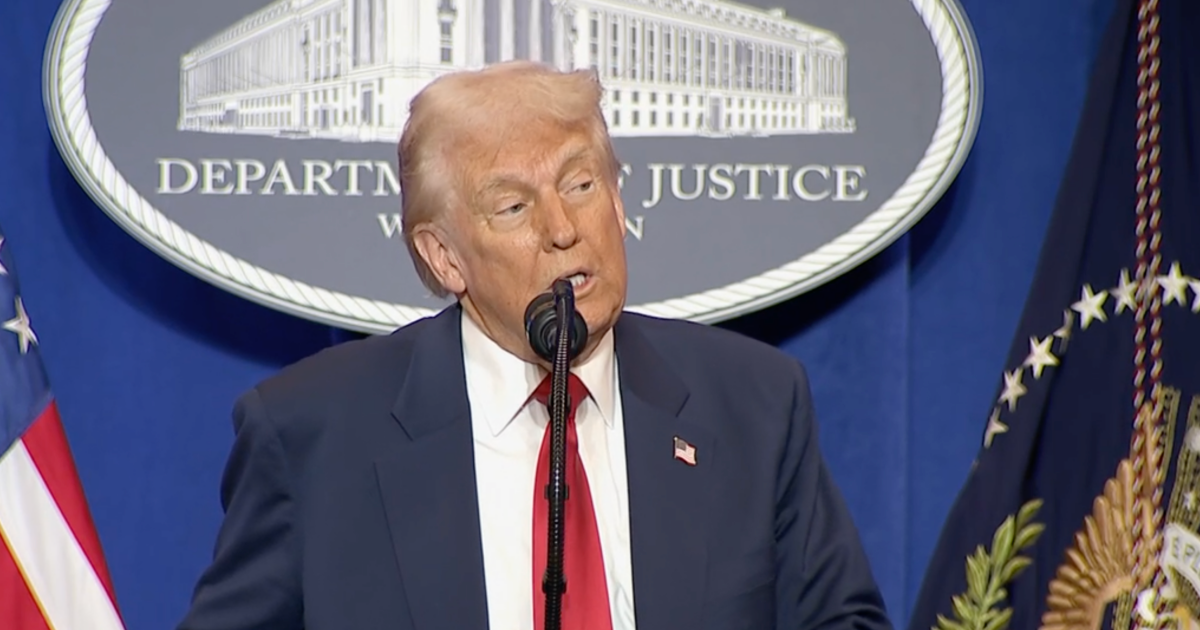On Saturday night, a federal judge temporarily blocked an order by President Donald Trump to remove immigrants under the Alien Enemies Act of 1798. The President had earlier announced his intention to enforce this wartime law, a decision that stirred up considerable controversy. However, despite the ruling by the judge, 261 individuals were still deported to El Salvador on the same night, with 137 of them removed under the Act due to alleged gang affiliations. This information was disclosed by a senior official within the administration.
The White House and the Justice Department stated that the deportations had already been carried out by the time the judge made his ruling. This move has further fueled the debate around the President’s immigration policies, particularly the use of a 227-year-old law as a tool for deportation.
The judge’s ruling came in response to a federal civil lawsuit that was filed on Saturday by a group of five Venezuelan men. These individuals, who were in immigration custody in Texas and New York local jails, filed the lawsuit against President Trump and other officials in his administration.
Earlier on Saturday, Mr. Trump had invoked the Alien Enemies Act, a law that was enacted over two centuries ago. The lawsuit, which was filed in federal court in Washington, D.C., by attorneys associated with the ACLU and Democracy Forward, asserts that the Alien Enemies Act is “a wartime measure that has been used only three times in our Nation’s history: the War of 1812, World War I and World War II.”
According to the 227-year-old law, Presidents have the extraordinary power to order the arrest, detention, and deportation of noncitizens aged 14 years or older. This power can be used against individuals from countries staging an “invasion or predatory incursion” of the U.S.
James E. Boasberg, the chief judge of the District Court for the U.S. District of Columbia, implemented a temporary restraining order on Saturday to prevent these deportations for a period of 14 days. The Justice Department, however, contested this decision, arguing that the D.C. court has no authority over the case. This is because none of the five men are within the district. Four of the men are being held in detention in Texas, and one is in New York. They further argued that the invocation of the Alien Enemies Act is based on mere “speculation.”
In an emergency hearing on Saturday evening, Judge Boasberg extended his order to include “all noncitizens in U.S. custody” who are covered by Mr. Trump’s decision to invoke the Alien Enemies Act. This decision was welcomed by Lee Gelernt, the ACLU attorney leading the lawsuit against Mr. Trump’s proclamation. Following Boasberg’s decision, Gelernt said, “We are thrilled the judge recognized the severe harm our plaintiffs would face if removed. The President’s use of the Alien Enemies Act is flat out lawless.”
Judge Boasberg also appeared to suggest that any deportation flights that were currently in progress with migrants subject to this order on board should be returned to the U.S. However, posts on social media from Salvadoran President Nayib Bukele seemed to indicate that a flight of deported individuals had already landed in his country after the order was issued. In one of these posts, President Bukele responded to a story about the ruling, saying, “Oopsie… Too late.”
The Trump administration insists that it did not defy the court order. The Justice Department, which has appealed the ruling, said in a court filing that several people “had already been removed from United States territory under the Proclamation before the issuance of this Court’s second order.” It noted that the five men covered by the first temporary restraining order had not been deported.
White House press secretary Karoline Leavitt, on Sunday, defended the administration’s actions, saying, “The Administration did not ‘refuse to comply’ with a court order,” also noting that the order was issued after many people had already been removed from the country.
The lawsuit asserts that Mr. Trump is “expected to authorize immediate removal of noncitizens that the Proclamation deems to be alien enemies, without any opportunity for judicial review.” The lawsuit also alleges that the Act’s language is being distorted: arrivals of noncitizens from Venezuela are being deemed an ‘invasion’ or ‘predatory incursion’ by a ‘foreign nation or government’, where Tren de Aragua, a Venezuelan gang, is considered equivalent to a foreign nation or government.
As a result, the lawsuit argues that the government can label any Venezuelan in the U.S. as a member of that gang, irrespective of the actual facts, and then seek to deport them. This has raised significant concerns about the potential misuse of the Alien Enemies Act for political purposes.
In response to the ruling, Attorney General Pam Bondi said, “Tonight, a DC trial judge supported Tren de Aragua terrorists over the safety of Americans. TdA is represented by the ACLU. This order disregards well-established authority regarding President Trump’s power, and it puts the public and law enforcement at risk.”
The lawsuit further contested that the Alien Enemies Act “has only ever been a power invoked in time of war, and plainly only applies to warlike actions: it cannot be used here against nationals of a country — Venezuela — with whom the United States is not at war, which is not invading the United States, and which has not launched a predatory incursion into the United States.”
The next hearing in the case is scheduled for March 21. This ongoing legal battle over the Alien Enemies Act and its use in current immigration policy is being closely watched by legal experts, immigration advocates, and the public alike.
The information for this report was contributed by Weijia Jiang, Camilo Montoya-Galvez, and Jacob Rosen. Scott MacFarlane, CBS News’ Justice correspondent, also contributed to this report. MacFarlane has covered Washington for two decades, earning 20 Emmy and Edward R. Murrow awards. His reporting has directly resulted in the passage of five new laws.









